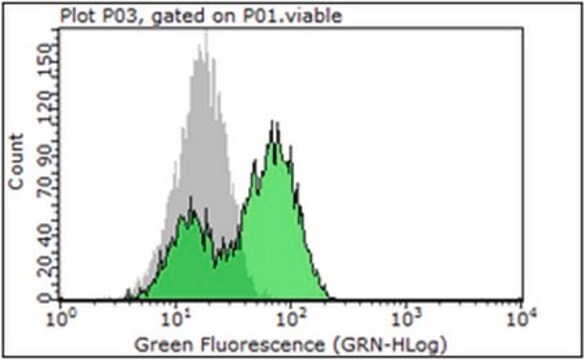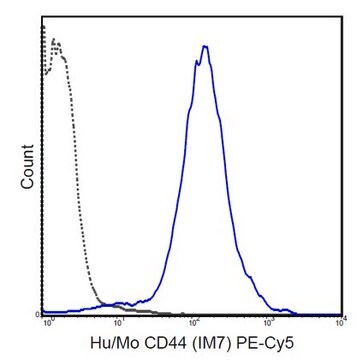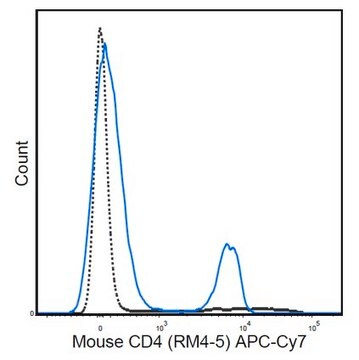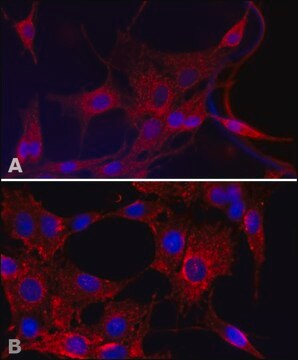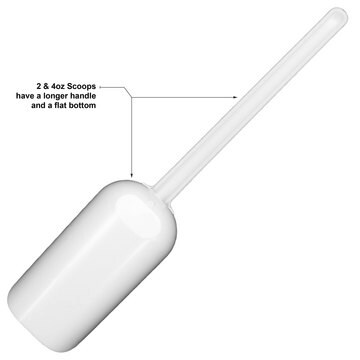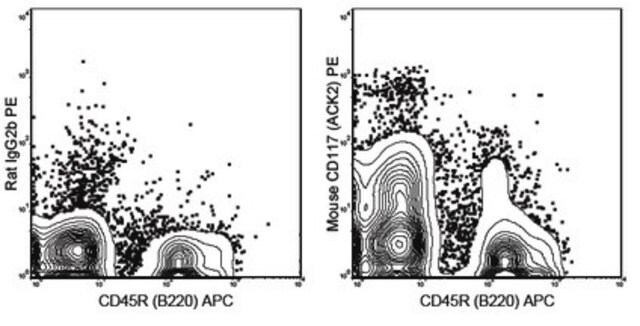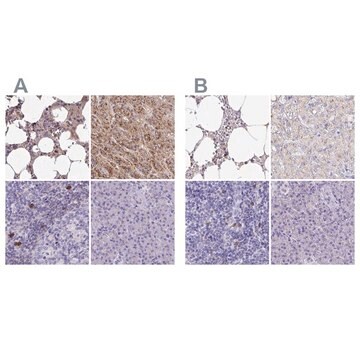MABF580
Anti-CD44 Antibody (human/mouse), APC, clone IM7
clone IM7, 0.2 mg/mL, from rat
Sinônimo(s):
CD44 antigen, Extracellular matrix receptor III, ECMR-III, GP90 lymphocyte homing/adhesion receptor, HUTCH-I, Hermes antigen, Hyaluronate receptor, Lymphocyte antigen 24, Ly-24, Phagocytic glycoprotein 1, PGP-1, Phagocytic glycoprotein I, PGP-I, CD44
About This Item
Produtos recomendados
fonte biológica
rat
Nível de qualidade
conjugado
Allophycocyanin conjugate
forma do anticorpo
purified antibody
tipo de produto de anticorpo
primary antibodies
clone
IM7, monoclonal
reatividade de espécies
mouse, human
embalagem
antibody small pack of 25 μg
concentração
0.2 mg/mL
técnica(s)
flow cytometry: suitable
immunohistochemistry: suitable
immunoprecipitation (IP): suitable
western blot: suitable
Isotipo
IgG2bκ
nº de adesão UniProt
Condições de expedição
wet ice
modificação pós-traducional do alvo
unmodified
Informações sobre genes
human ... CD44(960)
mouse ... Cd44(12505)
Descrição geral
Imunogênio
Aplicação
Inflammation & Immunology
Qualidade
Flow Cytometry Analysis: 0.125 μg of this antibody detected CD44 in one million C57Bl/6 splenocytes.
forma física
Armazenamento e estabilidade
Exoneração de responsabilidade
Não está encontrando o produto certo?
Experimente o nosso Ferramenta de seleção de produtos.
Código de classe de armazenamento
12 - Non Combustible Liquids
Classe de risco de água (WGK)
nwg
Ponto de fulgor (°F)
Not applicable
Ponto de fulgor (°C)
Not applicable
Certificados de análise (COA)
Busque Certificados de análise (COA) digitando o Número do Lote do produto. Os números de lote e remessa podem ser encontrados no rótulo de um produto após a palavra “Lot” ou “Batch”.
Já possui este produto?
Encontre a documentação dos produtos que você adquiriu recentemente na biblioteca de documentos.
Nossa equipe de cientistas tem experiência em todas as áreas de pesquisa, incluindo Life Sciences, ciência de materiais, síntese química, cromatografia, química analítica e muitas outras.
Entre em contato com a assistência técnica